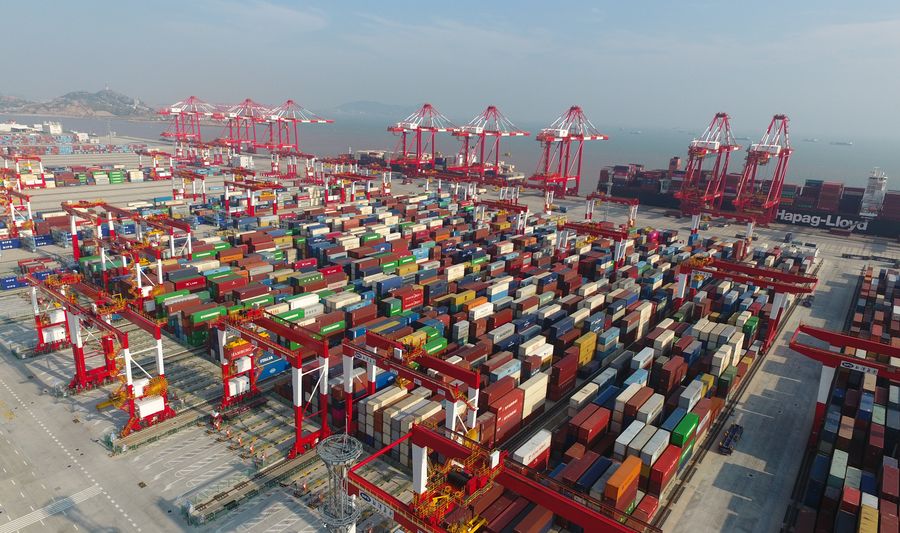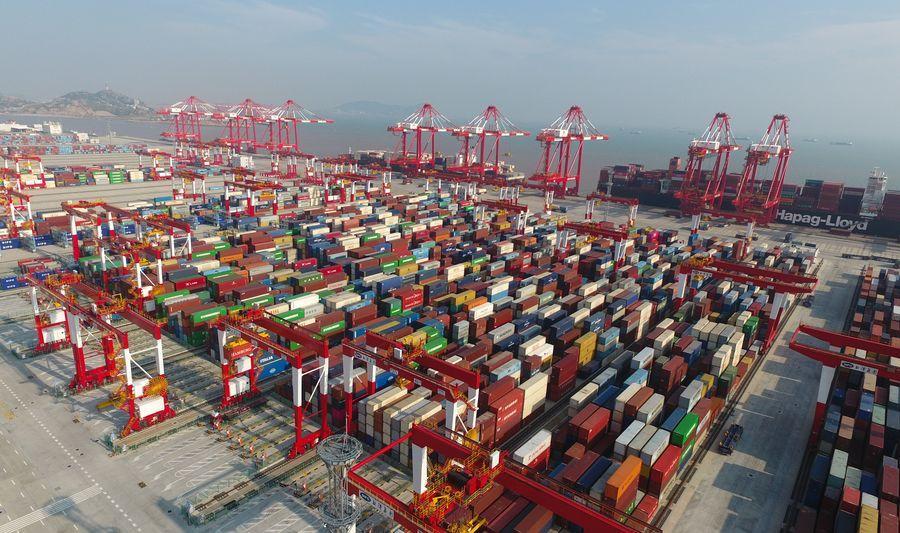
Aerial photo taken on July 25, 2018 shows Phase IV of the Yangshan Deep Water Port of east China's Shanghai. (Xinhua/Ding Ting)
BEIJING, Oct. 19 (Xinhua) -- China is exploring new potential for international cooperation through free trade agreements (FTAs) as it speeds up related negotiations with Norway and other countries and actively participates in the negotiation of the Regional Comprehensive Economic Partnership (RCEP), reported Shanghai Securities News Monday.
After many rounds of negotiations, China and Cambodia inked a free trade agreement on October 12, according to which China will grant zero-tariff to 97.53 percent of Cambodia's goods items, while Cambodia agrees to grant zero-tariff to 90 percent of China's goods items.
Besides, China and Norway recently held a chief negotiator video conference to discuss the bilateral free trade agreement, and the 8th Ministerial Meeting of RCEP was also held, indicating that the negotiations on bilateral and regional FTAs are accelerating.
Facing the new trend of regionalization and localization of the industrial and supply chains recently, China should strengthen cooperation with Northeast and Southeast Asia and other regions, and advance RCEP and the China-Japan-the Republic of Korea (ROK) free trade area, in a bid to provide conditions for effective response to unilateralism, nationalism, and trade protectionism after the COVID-19 pandemic, said Chi Fulin, president of China Institute for Reform and Development.
So far, China has signed 18 FTAs with 26 countries and regions. It is negotiating with six countries on FTAs, including Norway, Israel, Sri Lanka, Panama and Pakistan. It is also studying the feasibility of signing FTAs with Papua New Guinea, Colombia and other countries.
Data from the Ministry of Commerce of China show that the growth of China's imports and exports with its free trade partners from January to May this year is 4.8 percentage points higher than that of its total imports and exports during the same period, showing strong risk resistance ability. (Edited by Gu Shanshan with Xinhua Silk Road, gushanshan.1987@163.com)




 A single purchase
A single purchase









